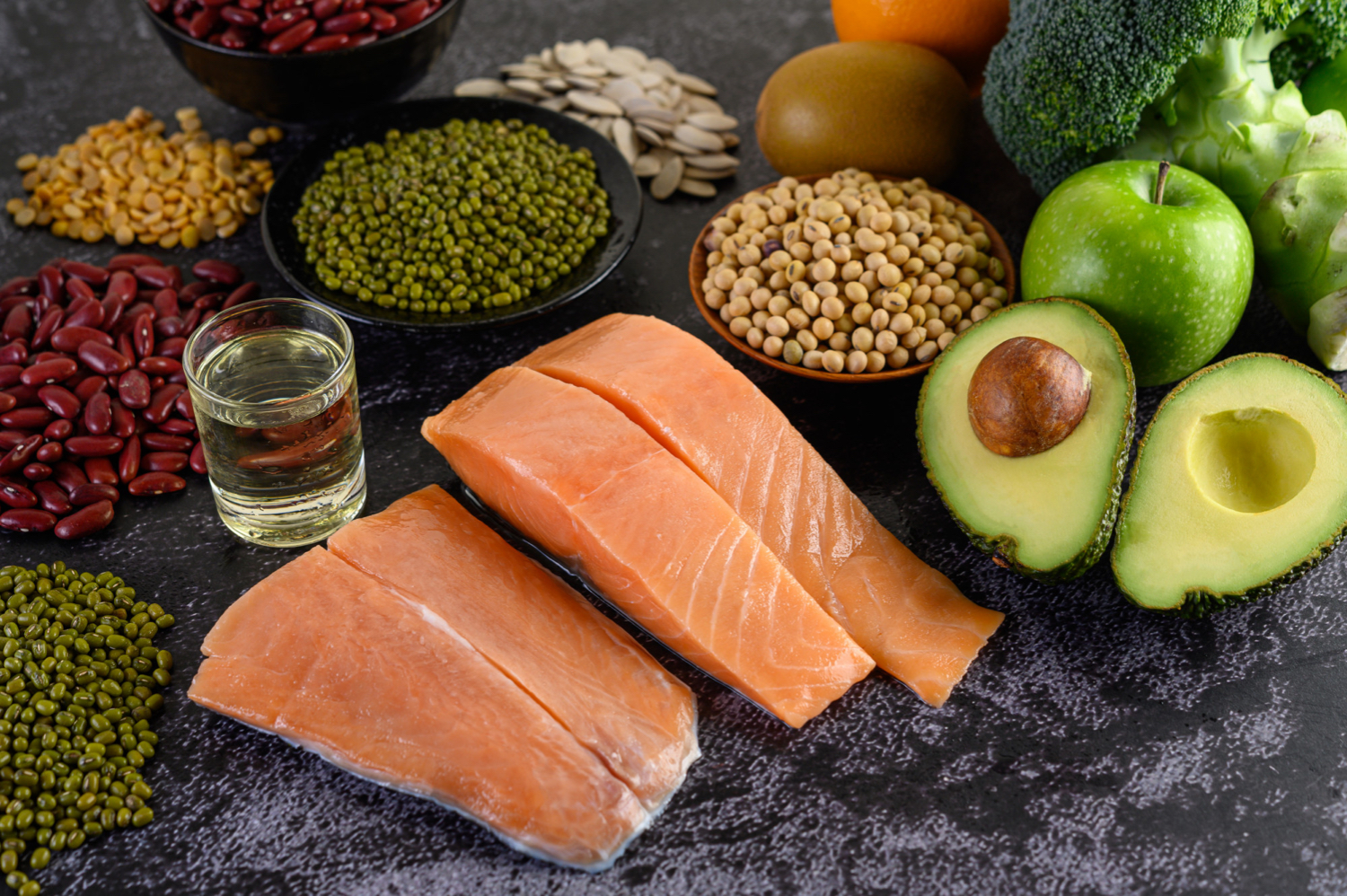Superfoods – these are foods that contain an exceptionally high amount of vitamins, minerals, antioxidants, biologically active compounds and fibre. As a result, they show beneficial effects on health. They also have dietoprophylactic properties, i.e. they prevent the occurrence of certain diseases. In this way, they also slow down the ageing of the body. The important point is that the foods are unprocessed and thus contain a maximum of beneficial ingredients. But can superfoods also be enjoyed by our pets?

Which foods are particularly good for your dog’s body?
The correct nutrition for your dog has an impact on the health and condition of your pet. Good dog food primarily consists of high-quality meat, fruit and vegetables that are full of biological compounds with beneficial effects on the body, and possibly functional additives. The food must be processed as little as possible to retain as many nutrients as possible. For this reason, wet food has an advantage over dry food. Low-processed food is only processed to make it microbiologically safe (get rid of potentially pathogenic microorganisms) and to give it shelf life. When looking for food that serves your pet particularly well, look out for the absence of preservatives, artificial flavours, colours and flavour enhancers.
Beneficial superfood raw materials
High-quality wet dog food contains a large amount of meat and animal products – a staple in their diet. These raw materials must contain wholesome protein. Such is found not only in meat but also in offal, often containing even more minerals. It is worth noting that the various types of meat differ in terms of their nutritional content and thus their properties. These results, among other things, from the way the animals live and are fed. On the market, there are foods with kangaroo, roe deer or goose meat, among others.
- kangaroo meat – the main food of these marsupials is leaves, grasses and mosses. Kangaroos live a slow life. Their meat is free of antibiotics and is considered one of the healthiest. Kangaroo meat contains a similar amount of fat to chicken and a large amount of highly digestible protein. It provides fatty acids, iron and zinc. It is interesting to note that kangaroos do not produce methane at all (a gas that contributes to the greenhouse effect), so they do not hurt the ecosystem,
- meat from roe deer – these animals live only in the wild and feed on wild plants, forest fruits and spend practically their entire lives on the move. As a result, their meat is low in calories and well-blooded. It is high in protein and low in fat and is well tolerated by those with allergies. It is worth mentioning that venison comes exclusively from environmentally neutral sources,
goose meat – exquisite poultry meat providing high-quality fatty acids. These birds tolerate confinement badly and are therefore not suitable for industrial rearing. They are usually housed in semi-open runs. They are fed green food and oats, all of which contribute to the taste and nutritional qualities of their meat.
Fruit and vegetables – vitamin bombs
Although the textbook dog menu consists primarily of meat, it should be varied with fruit and vegetables. Preferably those that contain particularly high levels of health-beneficial vitamins. Good vegetable ingredients for dog food are:
- blueberries, which contain polyphenols – compounds with strong antioxidant properties and which protect the circulatory system against the effects of ageing, including reduced elasticity of blood vessels,
- cranberries – a source of fibre that regulates the digestive tract and antioxidants. It has a protective effect on the circulatory system and benefits the urinary system,
- avocado – provides unsaturated fatty acids and helps to regulate blood sugar levels, soothing ongoing inflammation in the body.
Natural functional additives – dog food with superfoods
Also hidden in foods with dietoprophylactic properties are all-natural functional additives. They contain health-promoting substances in the most easily digestible form, such as
These include seaweeds, which are full of micro-and macro-elements, including iodine for good metabolism, antioxidant beta-carotene and chlorophyll for purification and reduction of potential carcinogens,
- the New Zealand mussel, an endemic crustacean that lives only off the coast of New Zealand and provides glycosaminoglycans, which are helpful in joint regeneration, and silicon, which improves the condition of the skin,
- psyllium (Psyllium plantain) – the seeds of this plant contribute to the proliferation of symbiotic bacteria, helping to strengthen the immune system, as does brewer’s yeast, also found in high-quality foods,
- Mojave yucca – the saponins contained in this plant ensure the proper functioning of the digestive tract – stimulate the secretion of digestive juices, regulate lipid and carbohydrate metabolism and have a detoxifying effect, while antioxidants protect against cancer.
Modern, high-quality dog food not only properly nourishes your pet’s body but also shows health-promoting properties and tastes great. To obtain maximum health-promoting benefits, they should be fed to your pet systematically as a daily meal.
